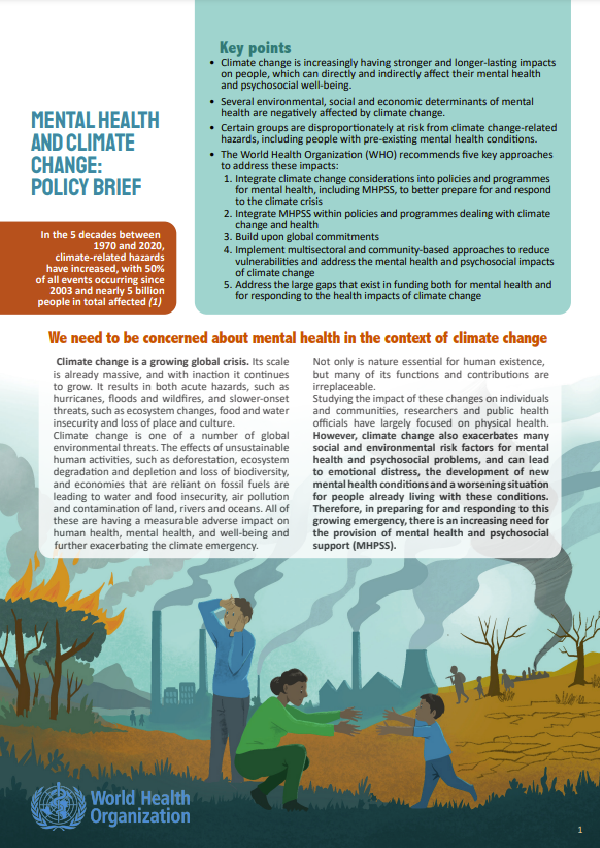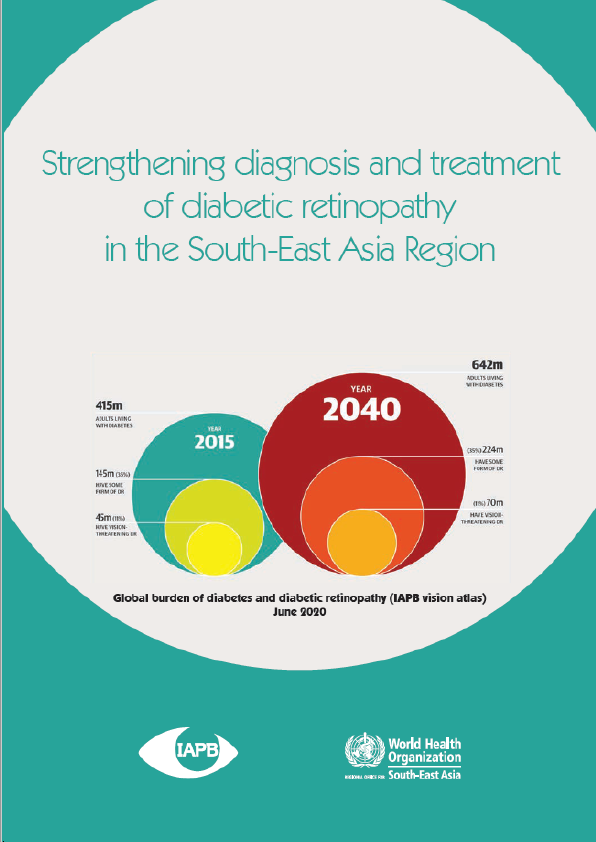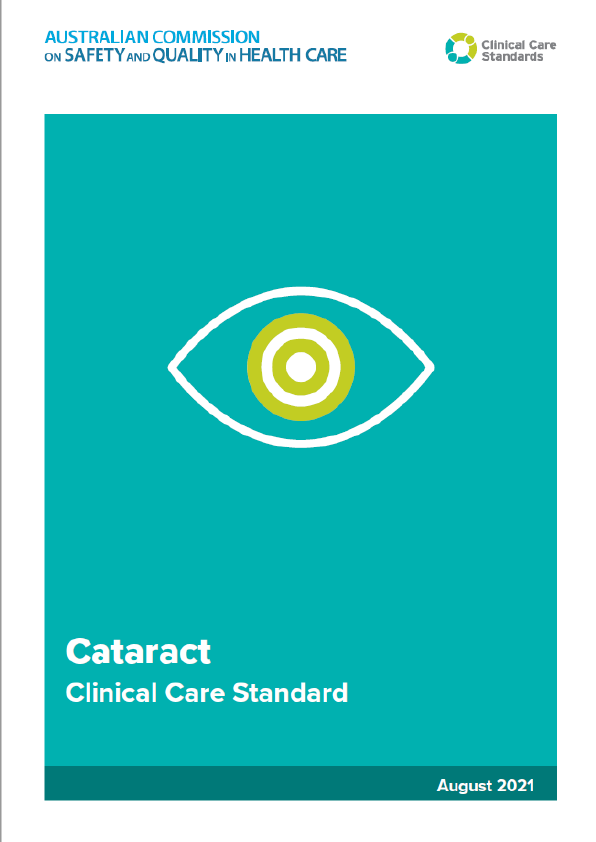The world faces an incredible climate crisis. Climate change exacerbates many social, environmental and economic risk factors for problems in mental health and psychosocial wellbeing. Yet, despite this impact, large gaps also exist in many countries between mental health needs and the availability and accessibility of the mental health systems and services to address them. In response to these challenges, WHO has developed a policy brief describing the interconnections between climate change and mental health and providing five key recommendations on potential approaches to address the mental health impacts of the climate crisis.
Climate change is a growing global crisis. Its scale is already massive, and with inaction it continues to grow. It results in both acute hazards, such as hurricanes, floods and wildfires, and slower-onset threats, such as ecosystem changes, food and water insecurity and loss of place and culture.
Climate change is one of a number of global environmental threats. The effects of unsustainable human activities, such as deforestation, ecosystem degradation and depletion and loss of biodiversity, and economies that are reliant on fossil fuels are leading to water and food insecurity, air pollution and contamination of land, rivers and oceans. All of these are having a measurable adverse impact on human health, mental health, and well-being and further exacerbating the climate emergency.
Not only is nature essential for human existence, but many of its functions and contributions are irreplaceable.
Studying the impact of these changes on individuals and communities, researchers and public health officials have largely focused on physical health. However, climate change also exacerbates many social and environmental risk factors for mental health and psychosocial problems, and can lead to emotional distress, the development of new mental health conditions, and a worsening situation for people already living with these conditions. Therefore, in preparing for and responding to this growing emergency, there is an increasing need for the provision of mental health and psychosocial support (MHPSS).
Mental health conditions already represent a significant burden worldwide. Even without climate change, the situation for mental health globally is already challenging. In many countries large gaps exist between mental health needs and the services and systems available to address them. In fact, most people with mental disorders do not receive any care. This is particularly true in low- and middle-income countries, where fewer than 20% report receiving adequate services.
There are gaps in understanding the impact of climate change on mental health and psychosocial well-being, but current knowledge is sufficient to act!
Not enough attention has been paid to mental health and psychosocial well-being in climate change literature, with studies on the topic emerging only since 2007. The connections between climate change and mental health and psychosocial well-being have been discussed mostly within the health frameworks of emergency and disaster management, particularly in the context of extreme weather events. However, knowledge on the topic is growing and strong arguments can be made for expanding this focus beyond these frameworks to recognize the role of MHPSS within broader climate actions.











